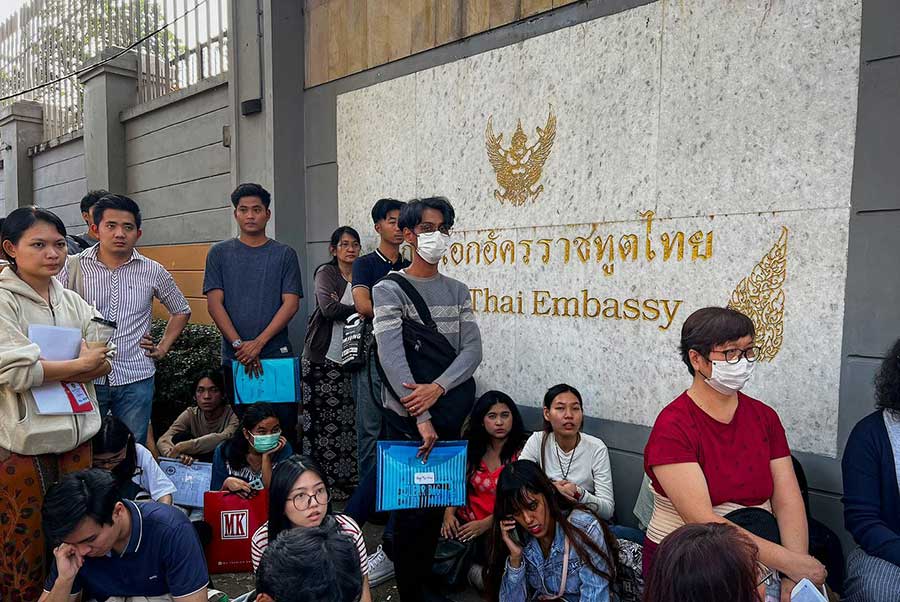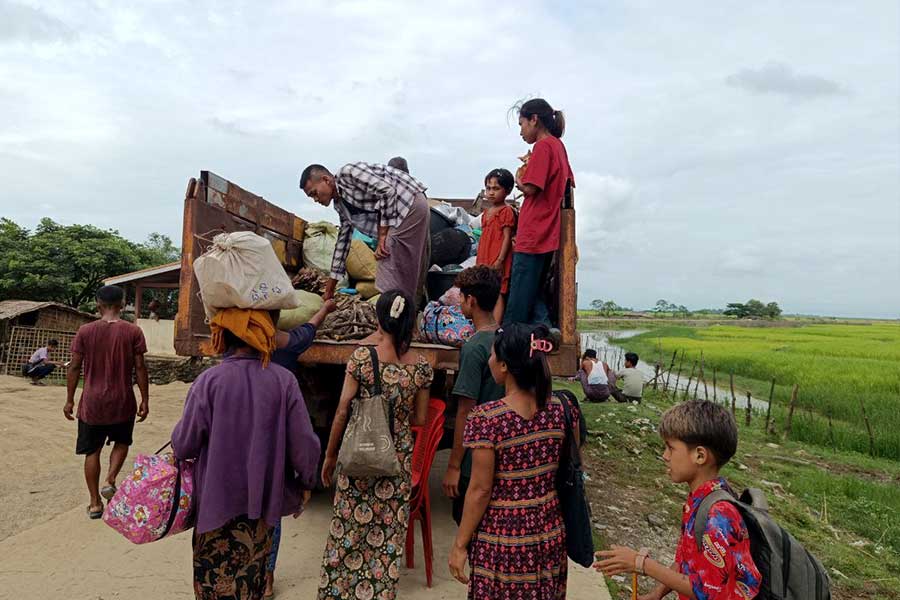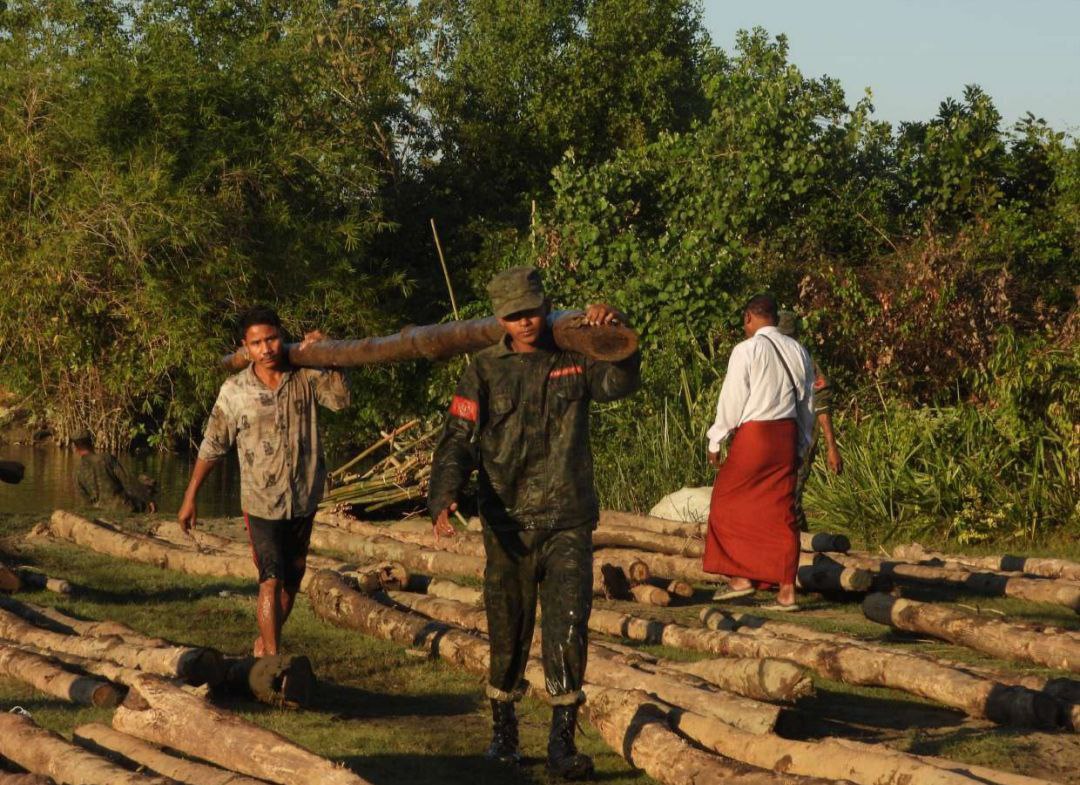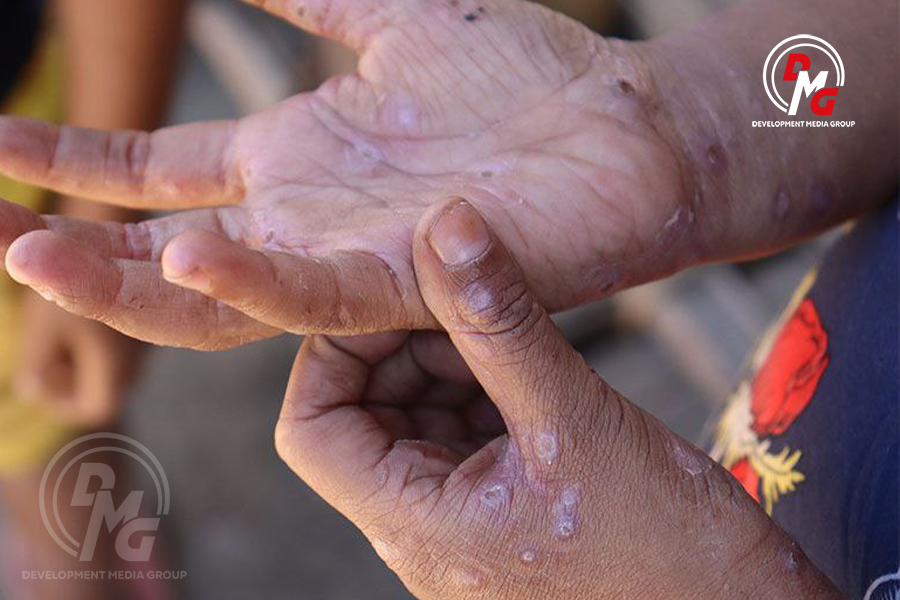- Family of minors raped by abbot in Kyaukphyu demand justice
- Salt farming declines in Arakan State as costs rise and markets falter
- Thousands flee junta raids in Mindon as villages are torched
- Children in Arakan State urgently need psychosocial support and safe spaces
- Regime uses paramotors and gyrocopters to target civilians, Fortify Rights says
Arakanese migrants struggle to leave Myanmar in bid to dodge draft
Many Arakanese internal migrants in Yangon, Mandalay, Naypyitaw and elsewhere are trying to leave Myanmar as soon as possible to avoid conscription.
13 Apr 2024

DMG Newsroom
13 April 2024, Sittwe
Many Arakanese internal migrants in Yangon, Mandalay, Naypyitaw and elsewhere are trying to leave Myanmar as soon as possible to avoid conscription.
Not only these migrants but also many of those who have recently fled the fighting in Arakan State are seeking jobs overseas that will enable them to leave Myanmar and avoid compulsory military service.
“We can’t return to Arakan State. But we have no income here [in Yangon], and we have concerns for our safety because of the conscription law. So, many more [Arakanese people] are trying to work overseas,” said an Arakanese man in Yangon.
Thailand, Malaysia, Singapore, Korea and Japan are major destinations for Arakanese migrants leaving Myanmar either legally or illegally.
“The majority of them try to work in Thailand. Some try to go there with official [work] visa, and some try to cross the border illegally through the network of agents, though it is not as easy as it was before,” said an Arakanese woman in Yangon.
The regime has blockaded roads and waterways in Arakan State since renewed fighting with the Arakan Army broke out in November. It has also imposed travel restrictions on anyone holding citizenship identification cards indicating they reside in Arakan State.
In the third week of March, the regime instructed express bus operators in Yangon not to sell tickets to anyone holding citizenship identification cards registered in Arakan State.
“My husband came back from Yangon a month ago. He had been stranded in Yangon as he couldn’t enter Arakan State. Family members were concerned for his safety,” said a woman from Pauktaw Township.
The regime has been forcibly recruiting young people since enacting the national conscription law on February 1.















.jpg)

